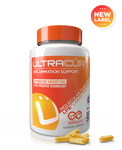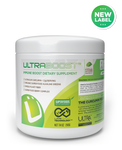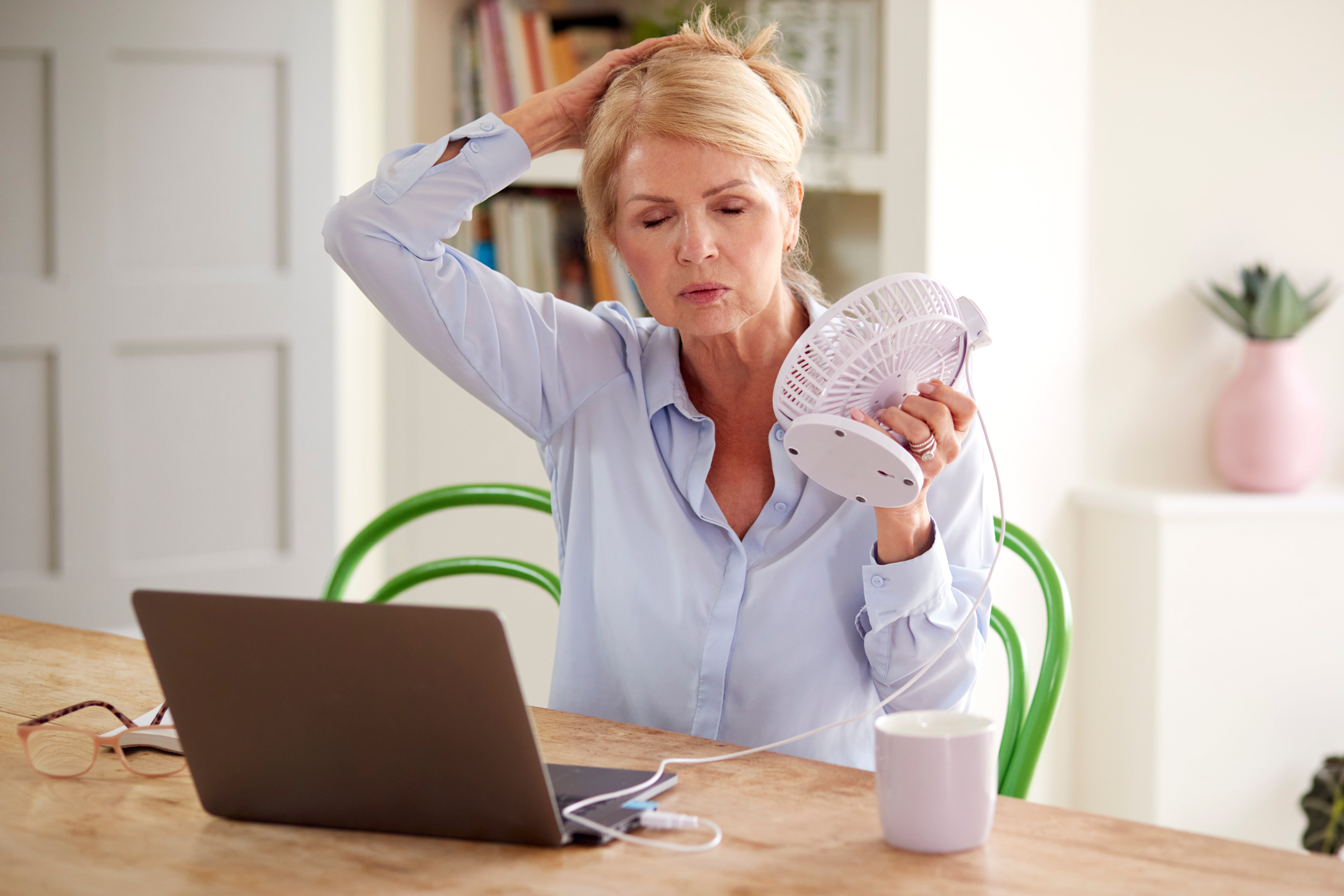It’s not just that time of the month anymore, it’s that time of LIFE!
Can you guess what is one of the most annoying events that occurs in the female body?
Menopause.
Menopause occurs when the female ovaries stop producing two of the most important and significant sex hormones that a woman possesses: estrogen and progesterone.
It’s a process like none other. It can start a woman down a difficult path of hot flashes and mood swings. This time can be unnerving for most women, but what is really happening in the body during all this?
How can women better handle their symptoms? Are there any reliable methods for testing our hormone levels?

What’s the Science Behind Menopause? Let’s Start with Basic Anatomy.
Life is no walk in the park... and women who have experienced pregnancy and labor will attest to the difficulties that a woman’s physical body is put through.
Aging is a sign that a woman has lived a long life... long enough for the ovaries to slow down and pause their production.
The ovaries are small oval-shaped organs that lie on both sides of the uterus connected by the fallopian tubes. At birth, a female’s ovaries contain ALL the possible developing eggs that she could ever conceive in her lifetime – and more! Over 1 MILLION.[1]
This gives her the greatest chances of producing healthy viable eggs and limits the possibilities of producing deformed ones. However, women only end up having on average a few and at most maybe 20.
What happens to the rest of them? As a woman goes through life, she begins to menstruate and release an egg each month. This egg came from a small sac within the ovary called a follicle. All eggs start off as follicles.
Once a woman hits puberty, these follicles develop, convert into eggs, release themselves from the ovary, and wait for the moment they unite with a sperm to produce a new baby.

About These Amazing Sex Hormones...
The follicles also have a second responsibility in the body – the production and secretion of estrogen and progesterone, the two very important sex hormones we mentioned before.
The main functions of these hormones is to prepare the woman for pregnancy by timing and regulating ovulation and menstruation. Without these hormones, a pregnancy would never occur naturally.
These hormones also help support and regulate various cellular processes that maintain the health and wellbeing of a woman’s body, to nurture a growing baby.
So if the ovaries are releasing eggs, they will continue to release these hormones simultaneously.

What Happens as Women Get Older?
On average, the ovaries are fully functioning, egg-dropping, hormone factories until the typical age of 45 and sometimes 50. Then the follicles and supporting cells inside the ovaries start to shrink and their functionality diminishes.
This ensures no more eggs are released and the remainder of the developing follicles are never used. They just exist now in an ovarian limbo state.
However, it also means a serious decrease of the two important hormones that women need to feel their best.
Thus, the onset of undesirable symptoms like hot flashes, night sweats, vaginal dryness, insomnia, and mood swings.
At 45 to 50 years old, a woman still has plenty of quality life to live. So how does she navigate and work through these unpleasant physical changes?
What can I do about menopause?
Since this process is a natural occurrence, prevention is not possible. But management of the symptoms is a necessity.
According to examine.com, the most effective treatment for severe menopausal symptoms is HRT or Hormone Replacement Therapy.
This treatment involves supplying your body with the hormones that it is lacking. This is recommended only for short term application however, due to some potential negative long-term consequences like heart attacks.[2][2]
>>>Omega-3 fatty acids from fish oil have been shown to interrupt overactive platelet formation and thereby prevent blood clots, which menopausal and postmenopausal women are known for developing.[3]
>>>DHEA is a precursor to estrogen and testosterone in women. They decrease during menopause.
A polish gynecology journal published that supplementation with DHEA is effective in managing menopause symptoms including osteoporosis, sexual disorders, low libido, and vulvovaginal atrophy.[4]
>>>Saffron extract’s exact mechanism is not completely known yet, but PubMed has many studies showing the benefits that this extract can have for menopausal symptoms.[5]
>>>Soy has had controversy, but check out this study showing that soy isoflavones “consistently” reduce hot flashes in menopausal women.[6]
Various exercises like yoga and resistance training have also been shown to help with psychological and physical symptoms.[2]
Talk with your functional health care provider to come up with an individualized plan for your personal needs.
How to Test Your Hormones
Pharmacist and Health Care Coach Mary Jane Frye, our guest speaker for this week’s podcast, talks about her preference for testing hormonal levels.
She says she prefers saliva testing because hormones are fat-soluble, and they like to "hide” in fatty substances. She considers blood testing less reliable.
By doing a saliva test with a trained compounding pharmacist or functional doctor, your hormones can be evaluated, and a customized hormone regimen can be created... personalized for you.
Sources:
1. https://my.clevelandclinic.org/health/articles/9118-female-reproductive-system#:~:text=At%20birth%2C%20there%20are%20approximately,quality%20of%20the%20remaining%20eggs.
2. https://examine.com/conditions/menopause/
3. https://pubmed.ncbi.nlm.nih.gov/35791734/
4. https://journals.viamedica.pl/ginekologia_polska/article/view/67815
5. https://pubmed.ncbi.nlm.nih.gov/?term=saffron+extract+menopause
6. https://pubmed.ncbi.nlm.nih.gov/24898224/

Check Out This Killer Podcast!
Speaking of Mary Jane Frye, we recorded our podcast interview with her which you can find here. Listen to the full podcast for ALL the details of Mary Jane Frye’s health protocols for hormone problems.
It’s perfect for you – also for a loved one! about how to lower NF-kB so you can lower inflammation, sidestep chronic diseases, and enjoy living your life.
If you prefer the audio only version, it's here.




